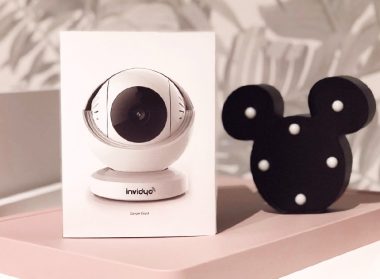Do you know how they say it takes a village to raise a child? Well, “they” are right. It does truly take a village to raise a child. And while most people tend to think that the actual struggle begins after a baby is born, that is not the case. Truth is, your journey begins as soon as you get pregnant. In fact, preparing for a baby is a process. If you happen to be an expecting first-time parent, then chances are you have no idea how to maneuver this new chapter of your life.
If planned out properly, preparing for the arrival of a baby can really ease the process. It won’t be as big of an adjustment once your child arrives. You can enter the world of parenting well-informed and prepared. It will also make it far easier to welcome your little one into the world. Like any task, the earlier you start, the better you can manage the entire situation.
In this thorough guide, we will take you through every single stage of how to prepare for a baby. This definitive guide will encompass everything from planning your tests during pregnancy to the postpartum period. Take it from us, as parents, we have been through the process multiple times. Not only have we personally experienced the parenting journey multiple times, but we have also learned from our experiences and cannot wait to share our findings with the rest of you.
ALSO READ: Beat The Summer Heat During Pregnancy
Table of Contents
- Learn about childbirth
- Pick a doctor
- Update your health insurance coverage
- Find a support group
- Prepare family members and furry friends
- Secondary caregivers
- Set up a birth plan
- Decide who you want around on the day of
- Familiarize yourself with the pregnancy timeline
- Prepare the nursery
- Buy baby essentials
- Jumpstart babyproofing your home
- Take care of essential home repairs
- Deep clean your house
- Consider baby announcements
- Think about daycare or childcare
- Prepare for postpartum
- What are some newborn must-haves?
- How to manage your time?
- Understanding the process of being a parent
Learn about childbirth
One of the biggest services you can do to yourself as a new parent is to learn about childbirth. This goes for both parents, actually. It is not limited to mamas alone. Begin by familiarizing yourself with the prospect of childbirth. While most people push the thought of childbirth out of their minds until the day of, you should take a moment to consider all that goes into the process.
Prepping for labor and learning about childbirth well ahead of time serves two important purposes. Firstly, you will not be caught off guard. This means you will be well informed about the process and are more capable with handling any unforeseen circumstances that may arise. Secondly, this is a great way for partners who are not actively pregnant to participate in the process.
A simple way to equip yourself with the required knowledge would be to take a childbirth class. Instead of having to do all the research on your own and sifting through thousands of online forums, pages, or even books, taking a class will give you a structured approach to the process. Some of the things you will learn from a childbirth class are:
- Different stages of labor
- Pain management options
- Breathing techniques
- Medical equipment and its usage
- Different ways of giving birth (e.g. water birth, epidural births, c-section or natural)
Once you have a better idea of the process, you will be able to chart out a birth plan with greater ease. Read on to learn more about what a birth plan is and how to make one. It is important to understand that while it definitely helps if you are equipped with the right knowledge and have a solid birth plan, things will not always go exactly according to plan.
Pick a doctor
Selecting a doctor refers to both your doctor as well as your future child’s doctor. If you already have a family doctor, the process is much simpler. However, if you have to pick a gynecologist as well as a pediatrician, you might want to start the process early.
For one, it takes time to familiarize yourself with a new doctor. And of course, you would only want the best doctor for your baby. Giving yourself plenty of time to choose a doctor is important for your family and baby’s wellbeing. You can start this process about halfway through your pregnancy.
Sometimes healthcare providers are not accepting new patients. You would not want to find out at the last minute, leaving yourself with very little choice. To avoid being pushed into a corner, start your pediatrician search early.
ALSO READ: 5 Simple Morning Sickness Remedies
Update your health insurance coverage
Another important factor to consider is health insurance. You will need to discuss adding your baby to your health insurance policy with your insurance provider. This is also a great opportunity to check which local providers are covered. If you feel like you don’t know where to begin, reach out to your friends and read reviews online.
You have to make sure that you and your partner understand the provisions of your insurance plan. This will come in handy in the case of benefits for labor, delivery and even maternity leave. Be sure to do your homework well so nothing catches you by surprise.
Find a support group
Being a new mom can be very scary. There is so much that you do not know and quite frankly, cannot know. Honestly, you are not expected to know most things. This is why having your own community of mothers is important. There is so much about motherhood that is regarded as taboo and not discussed as openly as it should. This includes postpartum depression, baby blues, low sex drive, postpartum urinary incontinence and so much more.
Of course, every mama’s journey is unique. You may never experience exactly what your friends did and vice versa. But knowing the many different avenues that exist within motherhood will help you understand your journey better. You will be able to create realistic expectations and start this new chapter with lesser uncertainty.
While advice and insights from other moms is truly invaluable, it can easily get overwhelming. It is not uncommon to be carried off and allow fear or judgment to get the better of you. You must always remember that a support group is exactly that. A support group. If it starts feeling less like a support group and more like a long list of complicated and rare birth complications, put a stop to it. You cannot let the fear of rare potential complications frighten you into a ball of worry.
That aside, many mom support groups, both online and offline, provide incredible advice for every stage during pregnancy. You can also find other moms who have a similar due date. This will help you navigate the entire pregnancy journey, and you won’t feel quite alone.
Prepare family members and furry friends
We’re sure everyone in your family is already super excited about the brand new addition on the way. But there are several things to consider and prepare for with family members as well as pets (if you own any). If you have any nephews, nieces, or even friends with older children, it might help to have a conversation with them.
As adults, we like to assume that children would automatically love another child in their midst. However, having a new baby that understandably is the center of attention can make other children feel left out and ignored. If there are children who you suspect will be spending time around your new baby once they arrive, it would be a good idea to gently break the news to them.
Regarding pets, consider hiring a local trainer or attending classes to help your pet adjust to a new addition to the family. You can also choose to train them yourself with the help of online videos and tutorials.
Secondary caregivers
The first few weeks after birth are quite challenging for a new parent. And understandably so. As a new mom or a new dad, having a newborn on your hands is no easy task. That is why it is a smart idea to have extra help. You do not need to (nor should you) do it all by yourself.
Have you considered secondary caregivers? These are people that you can trust to look after your baby when you need some time to rest or for yourself. Relatives or close loved ones are an excellent choice. However, if you cannot get the help of a close friend or a family member, you might want to consider a nanny or hired help.
ALSO READ: 10 Best Pregnancy Foods For High Intelligence Babies
Organizing information for caregivers
Sometimes parents find it useful to outline important information for secondary caregivers. This can include anything and everything that you consider important. Whether it is feeding times or hours that you need to yourself, discuss them with your secondary caregivers or compile them in a file or journal.
Writing down all this information is even better as it removes the possibility of errors. That way, you can be sure nothing is missed.
Set up a birth plan
A birth plan sounds pretty daunting. But, really it’s a simple breakdown of what to do, where to go and who to call when those first contractions hit. And you need to put this plan into place long before your contractions begin.
Setting up a birth plan is best done with your healthcare provider. they should be able to provide you with a clear set of guidelines on what you should do when you go into labor. This includes when to call your doctor and head to the hospital. If you plan to have a home birth, your healthcare provider will inform you when to call the midwife. It is up to you to decide who accompanies you. It is important to have a few backups just in case.
You should also plan your route, including which entrances to use and where to park. These logistics are taken care of when you take your hospital tour. During your tour, you will be informed about the hospital’s basic policies, labor rooms, and nursery, if they have one. Should it be possible, get your paperwork done in advance. This will help you bypass the bureaucracy once you get into labor.
Decide who you want around on the day of
An important personal decision you must consider is who will attend the birth. You will need to check the hospital’s policies for guests and visitors. Trust us, you do not want any surprises on the day of. Every hospital has different visitation policies, and it is in your best interest to know them in advance.
You can also appoint a spokesperson ahead of time. This individual will be mainly responsible do inform the rest of the family and your friends of any updates regarding the baby’s arrival. Remember that labor is an exhausting experience, and the last thing you want to deal with is unannounced visitors, particularly during your recovery. Managing your family’s expectations beforehand will help you get a more restful experience. In any case, if things get too overwhelming, you can always ask for the hospital staff’s support.
ALSO READ: Early Signs of Pregnancy To Look Out For
Considering a doula
Some mamas think it absolutely necessary to have a doula present. Having a professional labor assistant during the birthing process allows your partner to be more present with you. A doula would take care of the little details you may gloss over initially but will ultimately have to deal with in the moment. This includes navigating the birthing process, moving forward at your pace, and making sure things move according to your wishes. A doula is also essential in handling the entire affair calmly and collectedly. Mamas who opted for a natural birth found that the presence of a doula really help ease the process.
Choosing who gets to be present during birth
Some mamas are more comfortable with a full room. This includes their partner, a doula, relatives and family, and even friends to offer support and be present for the birth. Other mamas prefer their privacy. Once you check with your hospital and find out about their visitation policy, give the matter some thought. If you get this out of the way as soon as possible, you are least likely deceased misunderstandings, unwelcome visitors, or deal with offended parents.
Familiarize yourself with the pregnancy timeline
A rough timeline of your pregnancy, broken down by the week, can help you better navigate the upcoming nine months. Because every mama’s pregnancy journey is unique, this timeline only serves as a guideline to help you through the process. It is not definitive and you might notice a shift in some elements as you progress in pregnancy.
Months | Necessary Steps |
First | - Choose a healthcare provider - Begin supplements and vitamin intake |
Second | - Schedule your checkups 3-4 weeks apart |
Third | - Begin tests and screenings from Week 10 onwards |
Fourth | - Second trimester screenings begin |
Fifth | - Set up the nursery |
Sixth | - Think about secondary caregivers |
Seventh | - Start looking for a pediatrician |
Eighth | - Prepare your hospital bag |
Ninth | - Begin the countdown |
Prepare the nursery
Setting up a nursery takes a lot of work and effort. There are a few things you need to consider when preparing the nursery. For example, thick curtains properly blocking the light are a necessary investment. Similarly, a comfortable crib will ensure that your baby sleeps well. Ideally, you would also like to ensure that the room is quiet and away from any source of noise or disturbance.
Many parents enjoy decorating the nursery according to a specific theme or aesthetic. This can be a very fun process for both partners to unwind, relax, and bond with each other. Since it is also quite a lot of work, a smart idea would be to start preparing the nursery early during pregnancy. While decorating and preparing the nursery is entirely a matter of personal choice, there are some essentials that you absolutely must have. So let’s dive right into those.
ALSO READ: 8 First Time Pregnancy Tips I Wish I Knew Before
Nursery Essentials
Every parent has their own preferences for a baby nursery. However, there are some items that every nursery must include. These nursery essentials are basic and set the foundation for a well-equipped nursery.
- A crib: Even if you co-sleep during the first few weeks, it is important to have a crib already set up in the nursery. Trust us, you do not want to be ordering furniture and putting it together once your baby arrives. Sometimes furniture delivery takes up to 12 weeks. Plus, you will most definitely have your hands full once the baby arrives. So assembling can take a few days or even a few months. You would want to get this out of the way before the baby arrives.
- A crib mattress: Breathable mattresses are the best bet for your baby. Not only does it reduce the risk of suffocation and inhaling CO2, but it also enables better temperature regulation. Make sure you get one that is washable as well to make your life much easier. These are a great investment and can be later used for other children.
- Comfortable rocker or couch: Mama, you will spend a lot of time in this seat. Whether you prefer a rocking chair or a couch you can sink into, go for it. This purchase will make sure you are comfortable and hence, most present for your baby. Mama’s comfort is equally as important as the baby’s.
- Baby monitor: Trust us when we tell you that having a baby monitor in your nursery will make the new parenting experience loads easier. You get to be present for your baby without being a helicopter parent. Besides, you will also have the capacity to spend alone time with yourself or your partner.The Invidyo Smart AI Baby Monitor comes with two-way communication, cry and cough detection, sleep analysis, stranger alerts, and smile capture features. You get to keep an eye on your baby at all times, right from your phone. You also get instant alerts according to your preferences for any disturbance or if your child exhibits signs of discomfort.Not sure which one to get? Read our detailed comparison between the top 3 contenders for baby monitors.
- Black-out curtains: Good curtains are essential for your nursery. Not only are they a good sound barrier, but they also keep out the harsh light of day. You need to make sure your baby’s nursery is a comfortable place for your newborn. Black-out curtains also greatly improve your child’s sleep cycle.
Buy baby essentials
Every new parent finds it difficult to navigate the arena of baby purchases. It does not help that every baby store is bedecked with all sorts and variations of baby accessories. You can easily get distracted and go above budget (or worse, buy the whole store). You have to remember that you only ought to stick to the basics. So what are baby essentials?
One of the most important things to remember when shopping for a newborn is that they grow. And they grow fast. Many parents make the mistake of shopping in bulk for their newborns. However, most of their purchases go unused. You should shop for the first few weeks only and then replenish as your baby grows. That way, you can stick to a budget and reduce the chances of hoarding.
- Diapers: You should stock up on newborn-sized diapers for at least the first 2-3 weeks. It is also a good idea to stock some size 1 diapers. You’ll be really glad you did if you have a fast-growing baby on your hands. Decide on whether you want to use cloth diapers or disposable ones. In either case, there are plenty of options on the market. Perhaps ask other mamas what their choice of diapers was when their babies were young.
- Wipes: New parents don’t anticipate just how useful and necessary wipes are when dealing with a newborn. It will save you a lot of washing up and are especially gentle for your baby’s skin. The best choice would be water-based wipes that are fragrance-free. Parents have noticed that these wipes are least likely to irritate their baby’s skin.
- Onesies: Breathable (and/or organic) onesies are the perfect outfit for your baby. It is far easier to work with than pants and tops separately. Plus, they are designed to make them super easy to put on. You will need a few for the first few weeks and the next size up.
- Swaddle blankets: Babies love a good swaddle. Swaddling mimics the warmth and coziness of the womb. For a newborn, the sense of comfort and safety that comes with a swaddle is essential. The soft and stretchy ones are the best. Go for lightweight and breathable blankets to get the perfect tight swaddle every time.
- Nursing supplies: Mama, this one is for you. If you intend on breastfeeding your infant, you will need a small station, bag, or station with nursing supplies. This includes pads, burp cloths, nipple cream, and lots of water to stay hydrated.
ALSO READ: 10 Best Morning Sickness Snacks For Your First Trimester
Jumpstart babyproofing your home
While it is true that your baby will not start moving on their own until about six months of age, it helps if you start the babyproofing a little early. Most of the heavy lifting will need to be done later. However, getting some of it out of the way sooner makes the work easier later.
Child locks are an important accessory to consider installing around the house. Another important detail is to keep harmful substances out of lower drawers and cabinets. Essentially, anything that is unsafe for a child, such as detergents under the sink, should be stowed away, out of reach, at a higher level.
You should also install outlet covers to remove the risk of accidental electrocution. With babies, you can never be too careful. Another measure to take is to ensure all your smoke and carbon monoxide detectors are working. If you don’t have any, then look into getting them installed.
Take care of essential home repairs
The pregnancy period is also a great time to look into essential home repairs. Leaky taps, falling paint, creaky doors, and the small repairs around the house you have been ignoring for a while need to be fixed. Once the baby arrives, you will not have the time to work on the house. You will have your hands full. Plus, you will not be able to work on the house since the extra noise will be quite uncomfortable for your newborn.
Deep clean your house
Babies are very sensitive. Their immune system is still developing, so they are prone to contracting diseases rather easily. As adults, we don’t quite notice a little bit of dirt or dust around the house. But if you are welcoming a new baby into your house, you need to clean up properly. Whether you want to hire a service or someone, consider giving your house a deep clean before the arrival of your baby.
Any old carpets or rugs should be washed, clean the floors, dust the house, wash the curtains and couches, and most importantly, aerate the house. You need to ventilate the rooms properly to remove any residual smells or fumes from cleaning chemicals. Ideally, you should do this in the last few weeks of pregnancy. It is however, wiser to book the service in advance to avoid any last minute hassles.
ALSO READ: Everything to Know About First Trimester of Pregnancy
Consider baby announcements
While some parents share the news of their pregnancy right away, others like to wait until the end of the second or start of the third trimester to actually break the news. This way, if any hiccups or complications arise early on, the expecting parents won’t have to deal with what ensues.
For that reason, it is safer to share the news later in the pregnancy. This allows well wishers, friends and loved ones to still be able to throw you a baby shower and also make necessary arrangements. Whether you want to send out e-cards or physical ones, perhaps a close family friend can take care of designing announcements and mailing them.
If you want to take the easier route, you could also consider a social media announcement. That is undoubtedly the easiest, quickest, and cheapest way to go about it. Regardless, have a discussion with your partner about how you want to go about your baby announcement.
Think about daycare or childcare
Are you a working parent? Have you put in your notice for maternity or paternity leave yet? How long after birth will you resume working? All of these are important questions. Depending on how you wish to manage your time postpartum, you might want to consider daycare or childcare.
If you aren’t hiring a nanny or a babysitter, you should begin researching child/daycare. Some workplaces offer daycare and some do not. However, it should not be too hard to find one that fits your criteria. Talk to other moms in the area, or do some online research to find options that you can look into. Ideally, you would want to check out the facilities in person before settling on a choice.
All things considered, even if you choose to be a stay at home parent, having a backup daycare or childcare option is not a bad idea. This gives you room to take time for yourself and attend to your duties and responsibilities. It will also allow you time to spend with your partner, going on vacations and trips, and more room to breathe.
Prepare for postpartum
With all the focus and attention centered around labor and childbirth, postpartum care often goes unnoticed. Aside from taking care of your newborn, you will also need to tend to your needs postpartum. As a new parent, postpartum recovery will be a new journey that might get tricky to navigate.
Discuss things with other moms to get an idea of what to expect. Online forums and mama groups are also great sources of help. You will need to prepare a postpartum kit for yourself. This can include items such as pads, Tucks, and peri bottles. You can leave one in the bathroom and another in your bedroom, including wipes and ointment, for greater ease.
ALSO READ: 7 Ways To Deal With The Two Week Wait Period
What are some newborn must-haves?
Let’s break down the newborn must-haves into a few categories. This just makes things easier for you to read through and organize.
What to stock up on?
You will not find the time to go for grocery runs as regularly or frequently anymore. That is why it is important to stock up. Some of the more essential items you will need to stock up on include food items such as pantry staples and frozen foods. You will also need to stock up on toiletries, medicines and cleaning supplies.
An item that often goes forgotten is underwear. You will need all the extra pairs of underwear you can get. It works great for emergencies and you won’t find yourself in a situation where you have to run the wash frequently.
Big purchases to consider
The big purchases you will need include a car seat, baby carrier, and stroller. The earlier you get these, the easier it will be to shop peacefully and browse with ease. That way you won’t find yourself tight on time and can pick one out according to your budget and requirements. Pushing these purchases till later will have you scrambling to purchase something without doing your homework properly.
Once you purchase these items, be sure to test them out. You do not want a fault stroller or car seat on your hands besides a baby. Make sure everything works properly before your newborn gets to use them.
Ongoing/recurring expenses
Prepare a budget for recurring expenses. Items such as diapers, formula, wipes, clothing, toys, books, formula, and daycare, will require a monthly budget. These ongoing expenses will continue for a few months. It will make things much easier if you incorporate them in your budget while planning forward.
How to manage your time?
One of the biggest challenges faced by new parents is managing their time. Parents, especially mamas, tend to even neglect themselves in an effort to be constantly present for their newborn. However, it is important to remember that a healthy and happy mama is the best mama to care for a baby. If you are tired, exhausted, overworked, and running on little to no sleep, you cannot be fully present for your child.
A few things that can help you make time for yourself are:
- Having secondary caregiver(s)
- Installing a baby camera
- Hiring a babysitter or nanny
- Scheduling time off during the day
Understanding the process of being a parent
Being a new parent is a fresh chapter in your life. This is not a journey that you will know anything about until you actually experience it. So the first thing you should remember is to be kind to yourself. You are learning. No one else can tell you what being a parent is like. Every parenting journey is unique.
Of course, you can get help and advice from other parents. But, at the end of the day, you are living your own parenting experience. There will be obstacles and challenges that are unique to you. Focus on practicing kindness and love, both with yourself as well as your baby.
•••
Invidyo is a Smart AI Powered Baby Monitor designed to help parents watch over their baby at all times. It offers contactless monitoring, cough and cry detection, stranger alerts, and intuitive data analysis to inform parents about their baby’s health and wellbeing.
Subscribe to the Invidyo Care Bundle for $20/month and get a FREE Invidyo Baby Cam!










